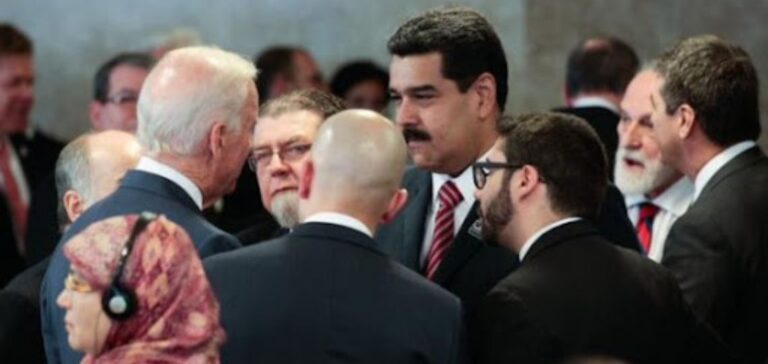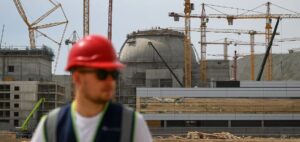US policy towards Venezuela is marked by complex strategic choices reflecting both economic and political priorities.
The United States has put in place a series of sanctions against the regime of Nicolás Maduro, whose re-election is disputed.
Although these sanctions have been partially lifted, they still weigh heavily on the Venezuelan economy, particularly its key oil sector.
With the US presidential elections just weeks away, the Biden administration faces a dilemma: maintaining pressure on the regime while avoiding aggravating an already alarming migration crisis.
Since 2019, US sanctions have profoundly affected the Venezuelan oil industry, which represents a major part of the national economy.
In 2023, the US administration partially eased these sanctions following a temporary agreement between the government and the opposition, which included an electoral timetable.
However, this respite was short-lived; sanctions were reimposed after the opposition failed to field any eligible female candidates.
Companies interested in exploiting Venezuela’s oil resources, such as Chevron, Repsol and Maurel & Prom, must now apply for specific licenses to operate, making access more complicated and regulated.
A cautious strategy in the face of migration challenges
American officials are particularly attentive to the impact that new sanctions could have on Venezuelan territory.
Indeed, a worsening economic crisis could lead to an increase in migratory flows, with direct implications for the United States, which already faces immigration-related challenges.
As the country prepares for what promises to be polarizing elections, the Biden administration is carefully weighing its decisions, fearing that overly severe measures could contribute to a massive flight of Venezuelans to the United States.
Demographic data reveal that around seven million Venezuelans have left their country as a result of the crisis, representing a significant fraction of the total population.
Some analysts, such as Francisco Monaldi, believe that the rigorous application of sanctions would not be effective in inducing the government to negotiate, but could simply increase migratory pressures.
This situation further complicates US strategy, where domestic and international interests collide.
The geopolitical implications of sanctions
The US position towards Venezuela must also take into account the growing activities of countries such as Russia and China in the region.
Russia, in particular, has strengthened its ties with Venezuela, exploiting opportunities in the oil sector.
Exchanges between President Vladimir Putin and Nicolás Maduro testify to an alliance that could exacerbate US concerns about energy security and foreign influence in Latin America.
If Chevron were to leave the country as a result of tighter sanctions, it’s likely that Russian or Chinese companies would be ready to fill the void, reinforcing the presence of these foreign powers.
Internally, voices in Washington are arguing for stricter sanctions, raising concerns such as those of policymakers and analysts.
Senator Dick Durbin, chairman of the Judiciary Committee, recently proposed cutting off all oil cooperation with Venezuela, claiming that oil revenues are being used to maintain Maduro’s authoritarian regime.
In addition, the Washington Post has called for economically targeted measures, suggesting that further action could be considered after the November presidential election.
Towards an uncertain future
Beyond the electoral stakes, the United States will have to navigate an increasingly complex international context.
Experts believe that a change of strategy could emerge depending on the outcome of the elections, especially if a return of Donald Trump to the presidency is on the horizon.
Trump had previously applied tough sanctions, hitting the oil industry and other key sectors in an attempt to topple Maduro’s regime, but without achieving the desired results.
It is against this backdrop of uncertainty that the US must determine its approach to Venezuela.
Officials recognize that they still have a range of options at their disposal, although they are striving to calibrate their policies taking into account both the realities on the ground and the wider implications for US interests in the region.
This step seems all the more critical in an environment where every decision can have profound repercussions on regional stability and international relations.
This complex political dialogue is taking place against a backdrop of rising geopolitical tensions and a humanitarian crisis that requires particular attention.
Pending a major change, the stakes remain high for US policy towards Venezuela and the ramifications linked to Maduro’s governance.





















